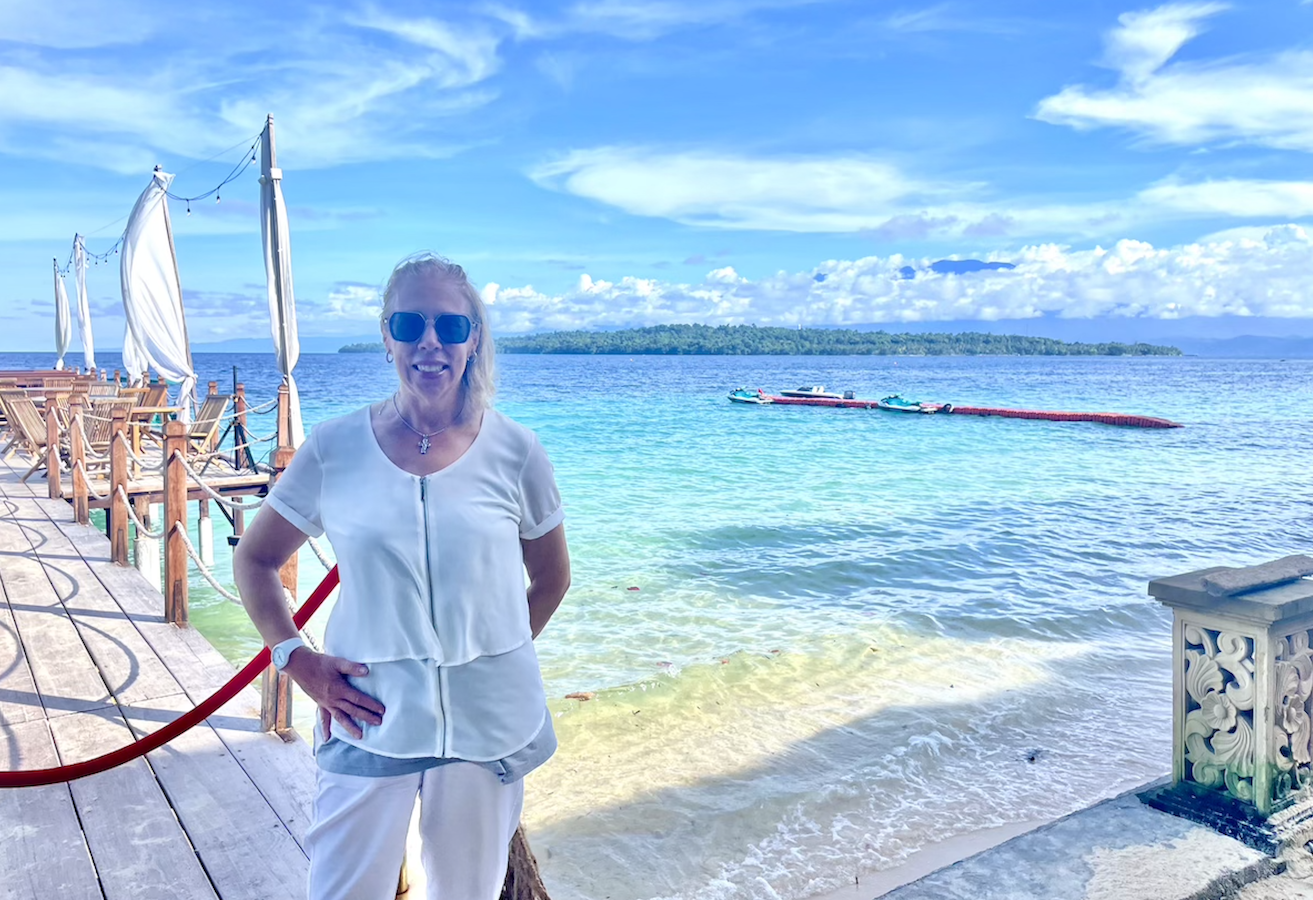A PRSA Member’s Trip to Promote Tourism in Indonesia
By Mary Louise VanNatta, APR, Fellow PRSA
August 2024
In early July, I traveled to Manokwari, West Papua — a remote part of Indonesia — to present a seminar on using public relations to develop tourism.
The U.S. State Department’s Young Southeast Asian Leaders Initiative hosted this unique, professional adventure. During the trip, we met with staff at the U.S. Embassy in Jakarta and with Indonesian government officials in Manokwari, West Papua. We also held a press conference and had time for sightseeing.
Last year, I served as a business host for a 29-year-old woman from Manokwari named Poppy Dolphina Momot. She spent six weeks working in my office in Salem, Ore., learning about PR principles. Together, we developed a successful grant proposal to conduct a PR seminar in Manokwari, which allowed me to travel there in exchange. I was traveling with my son, Ryan Gail, our company vice president and chair of the Salem Cultural and Tourism Promotion Advisory Board.
A 27-hour trip
Manokwari is a city within the massive country of Indonesia, which is spread across 17,000 islands in Southeast Asia. Americans seldom travel to Indonesia, and when they do, it’s usually to tourist destinations like Jakarta or Bali.
With a population of 107,000, Manokwari is the capital of West Papua, one of the six Indonesian provinces that make up Western New Guinea, a region also known as West Papua or simply Papua. The province of Manokwari has at least 24 tribes, each with its own culture and local dialect, but without any written language.

While Indonesia has the world’s largest Muslim population, Manokwari is primarily Christian. German missionaries came to the region in the mid-1800s, naming it the “Gospel City.” The area remains conservative, with alcohol sales strictly prohibited.
I consider myself an experienced traveler, yet I exercised caution when traveling to this part of the world. West Papua is a malaria-risk area and neighbors some areas of high conflict.
In 1969, the region was incorporated into Indonesia following a vote that many consider illegitimate. Protests and conflicts involving members of the “Free West Papua” movement persist to this day.
Our trip to Manokwari was expensive and long, requiring 27 hours of airplane travel from Oregon. Time zones changed frequently, making the exact time — or even day — hard to keep straight.
An attentive audience of students, journalists
At last, we arrived in Jakarta, Indonesia’s capital and a massive city of more than 10 million people. There we were invited to the U.S. Embassy to meet with the assistant cultural attaché, the embassy’s public affairs officers and participants in the Young Southeast Asian Leaders Initiative from all around Indonesia.
Created by the U.S. government to support emerging leaders in Southeast Asia, the international exchange program helps young professionals develop civic, economic and nongovernmental skills. During our meeting, young people in the program shared their experiences and career goals.
After arriving in Manokwari, I presented the PR seminar at a coffee shop. Local students and recent graduates listened attentively as I analyzed PRSA’s definition of public relations. The young people were eager to share West Papua’s story so the international community can better understand the region.
For sightseeing, Manokwari offers white-sand beaches, scuba diving, hiking and the extraordinary “Birds of Paradise” in Indonesia’s verdant Arfak Mountains. To better accommodate tourists, the region’s nascent tourism economy will need investment from the private and public sectors.
I recognized that this conversation needs to be community-driven, so I was mindful not to advocate for any specific direction.
My role during the PR seminar was to share a framework that the local people could use to start a conversation about developing a sustainable tourism industry in the area. I talked about stakeholder engagement and the importance of mutually beneficial relationships. Together, the young people and I brainstormed all the stakeholders who would need to be involved in discussions around tourism.
The next day, I held a press conference that public affairs officers from the U.S. Embassy in Jakarta had helped arrange with local journalists in Manokwari. Unlike the formal press conferences that I’m used to in the United States, this one was casual. With all their cellphones recording, they asked questions about the exchange program and my presentation. Poppy translated my answers into Indonesian.
An unforgettable collaboration
Our journey to Manokwari was an unforgettable experience. It also underscored the importance of cross-cultural collaboration and the global role of PR education.
Engaging with the local leaders, students and media helped me understand West Papua’s culture and environment. It was an adventure that I found both professionally enriching and personally rewarding.
I am thankful for the opportunity to help a passionate community share its story and to contribute to this vibrant region’s growth and development.
Below, the author talks more about her trip with Editor-in-Chief John Elsasser



